- Home
- Sarah Woodbury
Rise of the Pendragon (The Last Pendragon Saga Book 6)
Rise of the Pendragon (The Last Pendragon Saga Book 6) Read online
Rise of the Pendragon
Chapter One
Chapter Two
Chapter Three
Chapter Four
Chapter Five
Chapter Six
Chapter Seven
Chapter Eight
Chapter Nine
Chapter Ten
Chapter Eleven
Chapter Twelve
Chapter Thirteen
Chapter Fourteen
Chapter Fifteen
Chapter Sixteen
Historical Background
Sample: The Good Knight
Book six in The Last Pendragon Saga
Rise of the Pendragon
by
Sarah Woodbury
Copyright © 2011 by Sarah Woodbury
Rise of the Pendragon
What if the myths and legends were once real? What if gods and demons really walked among us—and the heir to the throne of Arthur was one of them?
With the other gods forbidden to interfere in the human world, it is up to Cade, Rhiann, and their companions to stop Mabon and the Saxons—and time is running out.
Rise of the Pendragon is the sixth novella in The Last Pendragon Saga.
To Taran
The Last Pendragon Saga:
The Last Pendragon
The Pendragon’s Blade
Song of the Pendragon
The Pendragon’s Quest
The Pendragon’s Champions
Rise of the Pendragon
The Lion of Wales Series:
Cold My Heart
The Oaken Door
Of Men and Dragons
A Long Cloud
Frost Against the Hilt
The Paradisi Chronicles:
Erase me Not
The Gareth and Gwen Medieval Mysteries:
The Bard’s Daughter
The Good Knight
The Uninvited Guest
The Fourth Horseman
The Fallen Princess
The Unlikely Spy
The Lost Brother
The Renegade Merchant
The Unexpected Ally
The After Cilmeri Series:
Daughter of Time (prequel)
Footsteps in Time (Book One)
Winds of Time
Prince of Time (Book Two)
Crossroads in Time (Book Three)
Children of Time (Book Four)
Exiles in Time
Castaways in Time
Ashes of Time
Warden of Time
Guardians of Time
Masters of Time
www.sarahwoodbury.com
Chapter One
Cade
“You’re telling me there are thirteen of these things to worry about?” Cade sat on the edge of a work table with Dafydd beside him. Every now and then, Dafydd reached out a hand to touch the hilt of Caledfwlch. Cade had made it clear that he was to stay close and use it if he needed it. Goronwy had brought Dafydd home in time, and Cade had healed his wound, but Dafydd still didn’t feel quite right. None of them—not Cade, Dafydd, or Taliesin—could explain it.
Just as with the black shadow in the cavern beneath Dinas Bran.
Cade glanced at Taliesin, whose expression was unreadable. Now that he could see again, Cade had been able to get even less out of him than before—about the shadow or anything else.
“That is my belief,” Taliesin said, answering the one question Cade had asked out loud. “You won’t like the rest of the story any better.”
“Better tell us quick, then.” Goronwy peered through the slit between the door and the frame. They had gathered in a storage shed off the courtyard. “Rhys will be noticing you’re gone and start to wonder.”
Cade had included the two women, Angharad and Catrin, in the consultation: Angharad because for generations her family had owned the cloak she’d brought, and she deserved to have a say in its future, and Catrin because … well … because Taliesin thought he should.
Cade too eyed the door. He’d arrived with his teulu and Taliesin the previous evening. The other lords of Wales had trickled in over the course of the day, but by the time the sun had set, the trickle had become a flood. Rhys and his men, Geraint and the lords of southern Gwynedd, with their knights and archers, and then a hundred others had arrived to fill the fort and its surrounding plateau with men. Only Rhun and Tudur were still missing. Cade was hugely relieved to know that he would have men to counter the Saxons. He’d called a Council session for within the hour.
Cade had chosen Caer Fawr as the place to meet because of its extensive defenses, its access to water close to the fort, and its proximity to Shrewsbury. He hoped the Saxons had never read Tacitus, for it was this spot that Caratacus had chosen for his last stand against the Romans. The fort was naturally defended such that they could cover every entrance and exit, with steep slopes on all sides and rings of an ancient rampart and ditch system of which Cade intended to take full advantage.
Caer Fawr had once been a great fortress, but now like Dinas Bran, lay half in ruins. The curtain wall, which followed the natural shape of the mountain, was one of the few works of stone that remained and enclosed a space of nearly three acres. In addition, a fifty-foot-wide extension at the southern end of the complex took up the base of the hill. Cade had posted watchers there and had ordered others to continually circle the mountain. If the Saxons came, Cade would know.
“The tale begins and ends with Arianrhod.” Taliesin leaned on his staff, both hands clasped at the top, and his chin resting on his fists.
Cade crossed his arms across his chest, prepared to be annoyed. “As it always seems to these days.”
“As you say.” Taliesin gestured to the items on the table. “These are some of the Thirteen Treasures of Britain which she kept, at one time or another, in her home on the Isle of Glass. Some of them she commissioned, some she merely acquired or inherited.”
“I know this story,” said Dafydd. “It includes a prophecy about one who will gather the Treasures and in so doing, restore the Welsh to their former glory. To a time before the Romans came.”
“Is that why Mabon wants them?” Angharad said. “Because he sees himself as a savior of the Welsh?”
Taliesin moved his head noncommittally. “His desire would be the power the Treasures would bring him.”
“Of course it would,” said Goronwy. “How could it not?”
“With every Treasure he collects, his power grows. He wouldn’t even need to gather them all to find himself ruling not only the human world, but the world of the sidhe.”
“Ah,” Cade said. “Understanding dawns at last. Mabon is in the human world because the Treasures are here. But it’s power among his own kind that he wants.”
Dafydd shifted beside Cade. His hand went to Caledfwlch’s hilt and he held it as he spoke. “No wonder the gods are taking sides. Do they know what Mabon has in mind? How many of the sidhe are with him and want him to overthrow Beli, who rules the sidhe council?”
Almost imperceptibly, Taliesin lifted one shoulder. “I’m not privy to those answers.”
“So what are they, these Treasures?” Cade said. “Do you have a list?”
Taliesin licked his lips, glanced once at Cade, and recited just loud enough so that everyone in the hut could hear:
“Dyrnwyn, the flaming sword, lost for centuries beneath the earth.
A hamper that feeds a hundred, a knife to serve twenty-four,
A chariot to carry a man on the wind,
A halter to tame any horse.
The cauldron of the Giant to test the brave,
A whetstone
for deadly sharpened swords,
An entertaining chess set,
A crock and a dish, each to fill one’s every wish,
A drinking horn that bestows immortality on those who are worthy,
And the mantle of Arthur.
His healing sword descends;
Our enemies flee our unseen and mighty champion.”
Silence fell among the companions. Cade’s hand clenched around a husk of bread, which he’d brought with him from the meal he’d interrupted to confer with his friends. As had become common of late, he was hungrier than he felt comfortable admitting, though that was far better than gaining energy by killing.
Goronwy broke the silence. “Why all the secrecy on Mabon’s part? This foolishness with it. Why not name them?”
“Because naming has power?” Taliesin said. “Because he knows to whom the items were given, but not which Treasure each man possessed? His motivations remain a mystery to me, beyond that he seeks these items for his own power.”
“Well, if they’re a mystery to you, I don’t see how we can hope to understand him,” Cade said.
“Maybe we shouldn’t try,” Dafydd said.
Goronwy cleared his throat. “So, at this juncture, King Cadwaladr has collected Caledfwlch, the mantle, the knife, and the whetstone. Four of thirteen, since the fake Dyrnwyn doesn’t count.”
“So it seems,” Taliesin said.
“All of which Mabon is seeking and because of Mabon, we now possess these in one place,” Dafydd said.
“Again, yes,” Taliesin said.
“None of this helps us in the slightest against the Saxons,” Bedwyr said.
“No,” Cade said. “The treasures comprise a separate issue, unless we have to fight Mabon for them at the same time as we fight the Saxons for our freedom.”
“I hope that is not the case,” Taliesin said. “Time is not the same to Mabon as to us. He’s just as likely to disappear for a week as to know where we are and when it is to us.”
“And Mabon isn’t as powerful as he thinks he is,” Dafydd said. “He isn’t a good swordsman. For all that he injured me, it was his sword that did the damage, not some invincibility or strange power of his own. He can’t hurt you unless you let him and give him power over you. I don’t understand him at all. I don’t understand the world of the sidhe at all.”
“Probably better that you don’t,” said Geraint.
“Perhaps his only real power stems from his association with his mother or father, and since neither are aware of his activities, he has only his glamour to fall back on,” Dafydd said.
“He can do a lot with glamour,” Goronwy said.
Geraint jerked his chin towards the door. “It’s time to go.”
“Just a moment.” Cade gazed at the Treasures on the table and then swept up the cloak. He met Taliesin’s eyes for a heartbeat and then swung the cloak over his shoulders.
Catrin gasped.
“Can any of you see me? Taliesin?”
“No,” Taliesin said.
Cade pulled Caledfwlch from its sheath. “And now?”
“No again,” Taliesin said.
“What are you thinking?” Dafydd said.
Cade almost laughed to see him looking at a spot a hand’s span from Cade’s eyes and a foot higher. Cade walked to the door, opened it wider, and peered out.
That got more of a response from the others. Bedwyr said, “You don’t really think—”
Cade shot Bedwyr a grin he couldn’t have seen. “No time like the present!” He slipped out the door and into the daylight. He left the door wide so they all could see him, were he to start burning up or be struck by lightning or experience any of a number of events Cade deemed unlikely.
Instead, what Cade thought might be true, was. He stood still for a long moment, his neck bent forward, staring at the ground, and then spread his arms and tipped his head back to look up into the sky. A ray of sunshine pooled against the curtain wall, and Cade deliberately stepped into it.
Nothing.
Restraining an urge to whistle, Cade strolled back to the hut. He slipped off the cloak and dropped it onto the table. “Do you see any harm in me wearing it, Taliesin, if the need arises?”
Taliesin gazed at the swath of fine wool. “All magic comes at a cost, but I think the price for this one has already been paid.”
“As with Caledfwlch,” Cade said.
The mantle of Arthur will protect the King of Gwynedd, once again.” Taliesin bowed his head.
Now it really was time to go. “Taliesin, a moment. The rest of you—I need you to keep your eyes and ears open. I don’t trust Rhys, for all that he appears to side with us now.”
“Yes, sir.” Dafydd had his hand at Angharad’s waist, in what Cade perceived to be a proprietary fashion, and steered her out the door towards the hall. Bedwyr saluted him as he left, followed by Catrin and Hywel.
“And Goronwy,” Cade said before he could leave with the others, “I’ll see you in the hall for the Council Meeting.”
Goronwy halted in the doorway. “Why me?”
“You are the eldest of Cade’s knights, the son of the King of the Isle of Man, and a leader of men in your own right,” Taliesin said. “Your own father could claim the High Kingship if he chose.”
Goronwy muttered under his breath and then raised his voice so they could hear him. “The question was rhetorical.”
Cade smiled and shot him an amused glance. “If I have to suffer through another one of these meetings, so do you.”
Goronwy grimaced and departed.
Cade turned to Taliesin. “What am I to do with these?” He fingered each item in turn—the cloak, the knife, the whetstone, and the false Dyrnwyn—as they lay on the table. “They can’t stay here. I’m not going to stay here, and who shall guard them when I’m gone? Will I have to bring them with me everywhere I go?”
“That is going to be a problem, but it is one for another day,” Taliesin said. “If you like, I could take one, or all, or none, as you see fit.”
Cade studied his friend. “To what end? Are you leaving me again?”
“Mabon is seeking the remaining Treasures,” Taliesin said. “Someone has to counter him. Your tasks are many, with what you have before you today, this week, and this year, without concerning yourself with this task too.”
“Do you suggest we scatter them again to keep them from him?”
“That might be wise,” Taliesin said. “But we have to think about the manner in which we do it. Whoever scattered them the first time thought they’d be safe with the families with whom he entrusted them.”
“And they were,” Cade said. “For a time.”
“It might have even been the great King Arthur who did this, before his death,” Taliesin said.
“Before we follow in his footsteps, we must understand how Mabon found the location of each of the Treasures in the first place.” Cade picked up the knife and dropped it, frustrated as always by his lack of knowledge. He might be a sidhe—some of the time—but he was not on a par with the gods, no matter how powerful he might appear to his fellow men. He scoffed at his pretentions under his breath, but then a slight sound from Taliesin had him looking up.
Taliesin was looking at him with an unreadable expression.
Cade gazed back, uncertain as to what his friend was seeing. “What’s wrong?”
“You haven’t mentioned gathering the Treasures for yourself,” he said. “Not even once.”
“Why would I want them?” Cade said. “It’s Mabon who seeks that kind of power, not me. Never me.”
“It would greatly enhance your ability to influence the High Council, not to mention enable you to control Mabon and whoever else opposes you in the world of the sidhe.”
At that Cade laughed. “If that is true, I may reconsider! I would give much for that kind of power.”
“And,” Taliesin said, “they would help you fend off the Saxons. There is every reason to want to gather them to yourself.”
“You’re not seriously suggesting this? You of all people?”
Taliesin shook his head. “I’m not suggesting it as much as putting the choice out in the open. If you reject the opportunity—if you choose to gather the Treasures but not use them—you need to know what you’re giving up.”
“When have I ever had that kind of ambition?” Cade said. “It’s a fool’s quest. A man could go mad pursuing them. Perhaps Mabon already has.”
“Be that as it may, are there others besides Caledfwlch you would keep, at least for now?” Taliesin said. “The items were created because they were useful, after all.”
Cade spoke without hesitation. “The cloak. It uniquely serves my peculiar needs. The whetstone may help us defeat the Saxons this one time, but too many men aren’t worthy of it, and the men who are worthy of it are precisely the ones who don’t need it. The knife is useless in battle. While I appreciate the fact that with it, I have the ability to feed my men, whole villages would benefit from it in times of famine. It would be wrong to keep it to myself.” He glanced at his friend. “You should take that one with you on your travels.”
“You know me well.” Taliesin gestured to the fake Dyrnwyn. “And this sword?”
“Even if it were real, I have a sword that suits me.” Cade patted his hip.
Taliesin traced the ornate designs on the sword’s hilt with one finger. “I believe Dafydd is mistaken. This is the real Dyrnwyn, my lord.”
Cade look over at him, surprised both at his words and at his uncharacteristic use of Cade’s title. “Really?”
“The magic of Dyrnwyn is not easily discerned,” Taliesin said. “Arawn bore it and bent it to his will, but he did not master it. Gofannon, the divine smith, forged it, along with the horn of immortality. The latter he gave to his sister, Arianrhod, while he gave the sword to his brother, Gwydion, the great warrior.”
“Your patron,” Cade said.
“Indeed.”
“And why do you say that this is that same sword?” Cade said. “I saw it in Arawn’s possession. I held it afterwards, and it flamed for me. Even Dafydd was worthy to draw it. We’ve both held this sword, and it lies in our hands, limp.”

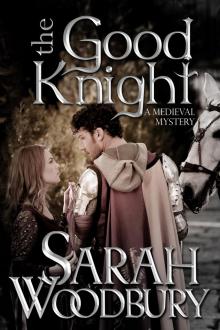 The Good Knight
The Good Knight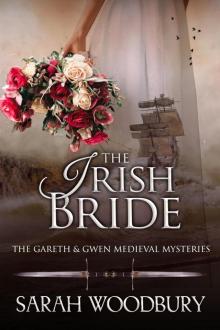 The Irish Bride
The Irish Bride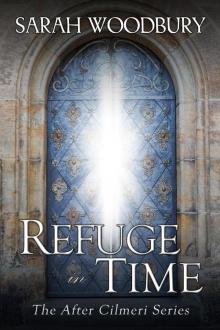 Refuge in Time
Refuge in Time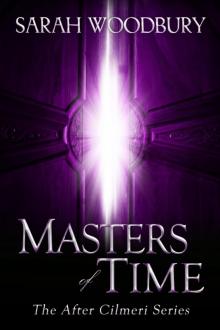 Masters of Time
Masters of Time Prince of Time (Book Two in the After Cilmeri series)
Prince of Time (Book Two in the After Cilmeri series)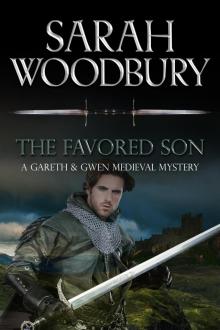 The Favored Son
The Favored Son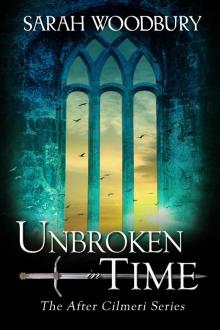 Unbroken in Time
Unbroken in Time![[The Lion of Wales 01.0] Cold My Heart Read online](http://i1.bookreadfree.com/i/03/22/the_lion_of_wales_01_0_cold_my_heart_preview.jpg) [The Lion of Wales 01.0] Cold My Heart
[The Lion of Wales 01.0] Cold My Heart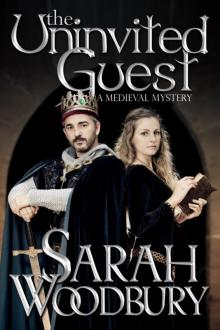 The Uninvited Guest
The Uninvited Guest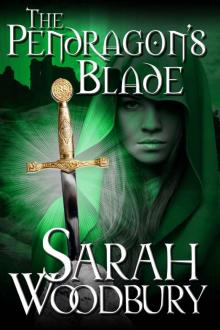 The Pendragon's Blade (The Last Pendragon Saga Book 2)
The Pendragon's Blade (The Last Pendragon Saga Book 2)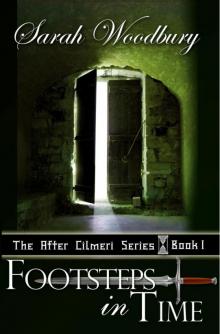 Footsteps in Time
Footsteps in Time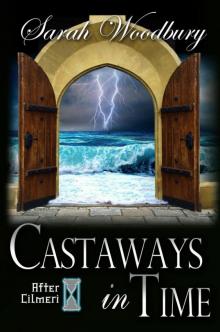 Castaways in Time (The After Cilmeri Series)
Castaways in Time (The After Cilmeri Series) Winds of Time
Winds of Time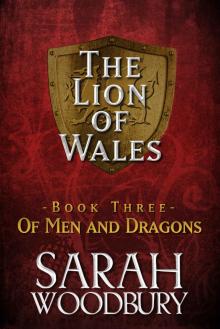 Of Men and Dragons (The Lion of Wales Book 3)
Of Men and Dragons (The Lion of Wales Book 3) Champions of Time
Champions of Time The Pendragon's Challenge (The Last Pendragon Saga Book 7)
The Pendragon's Challenge (The Last Pendragon Saga Book 7)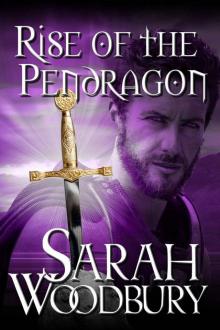 Rise of the Pendragon (The Last Pendragon Saga Book 6)
Rise of the Pendragon (The Last Pendragon Saga Book 6)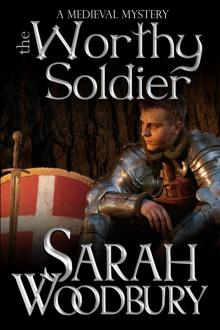 The Worthy Soldier
The Worthy Soldier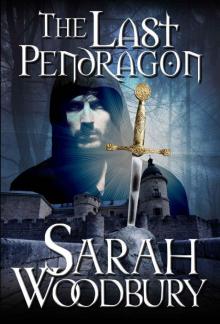 The Last Pendragon (The Last Pendragon Saga Book 1)
The Last Pendragon (The Last Pendragon Saga Book 1) The Fallen Princess
The Fallen Princess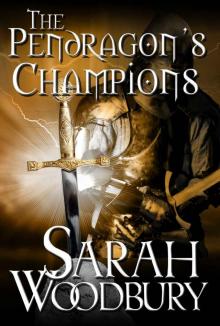 The Pendragon's Champions (The Last Pendragon Saga Book 5)
The Pendragon's Champions (The Last Pendragon Saga Book 5)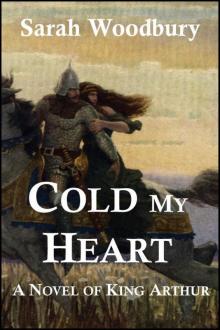 Cold My Heart: A Novel of King Arthur
Cold My Heart: A Novel of King Arthur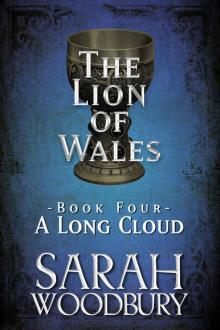 A Long Cloud (The Lion of Wales Book 4)
A Long Cloud (The Lion of Wales Book 4)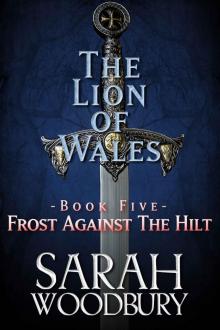 Frost Against the Hilt (The Lion of Wales Book 5)
Frost Against the Hilt (The Lion of Wales Book 5) Daughter of Time: A Time Travel Romance
Daughter of Time: A Time Travel Romance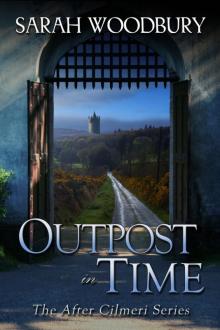 Outpost in Time
Outpost in Time Shades of Time kobo
Shades of Time kobo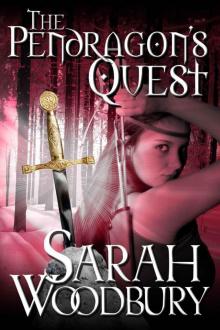 The Pendragon's Quest (The Last Pendragon Saga Book 4)
The Pendragon's Quest (The Last Pendragon Saga Book 4)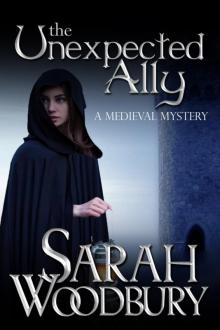 The Unexpected Ally
The Unexpected Ally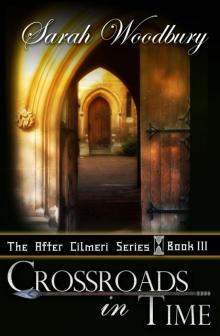 Crossroads in Time (The After Cilmeri Series)
Crossroads in Time (The After Cilmeri Series)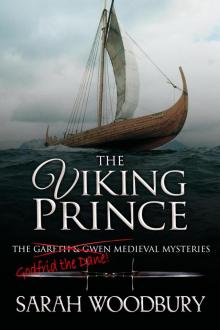 The Viking Prince
The Viking Prince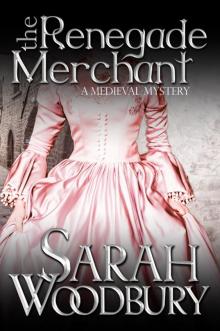 The Renegade Merchant
The Renegade Merchant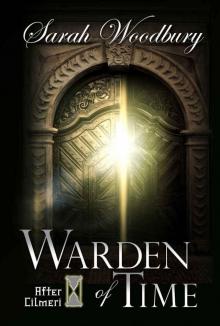 Warden of Time (The After Cilmeri Series Book 8)
Warden of Time (The After Cilmeri Series Book 8)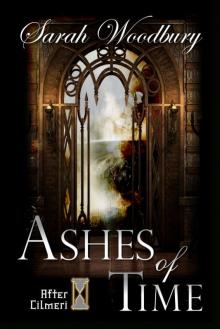 Ashes of Time (The After Cilmeri Series)
Ashes of Time (The After Cilmeri Series) Exiles in Time (The After Cilmeri Series)
Exiles in Time (The After Cilmeri Series)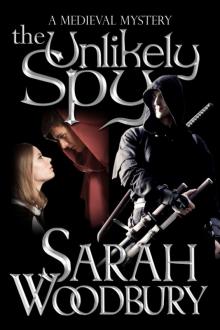 The Unlikely Spy
The Unlikely Spy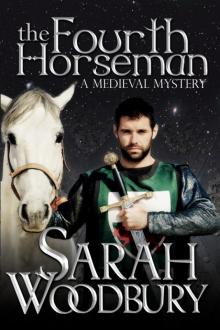 The Fourth Horseman
The Fourth Horseman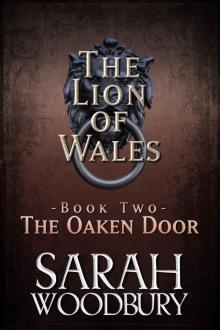 The Oaken Door (The Lion of Wales Book 2)
The Oaken Door (The Lion of Wales Book 2) Song of the Pendragon (The Last Pendragon Saga Book 3)
Song of the Pendragon (The Last Pendragon Saga Book 3) Champions of Time (The After Cilmeri Series, #13)
Champions of Time (The After Cilmeri Series, #13)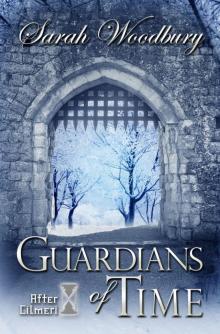 Guardians of Time
Guardians of Time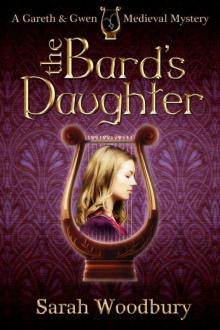 The Bard's Daughter (A Gareth and Gwen Medieval Mystery)
The Bard's Daughter (A Gareth and Gwen Medieval Mystery)